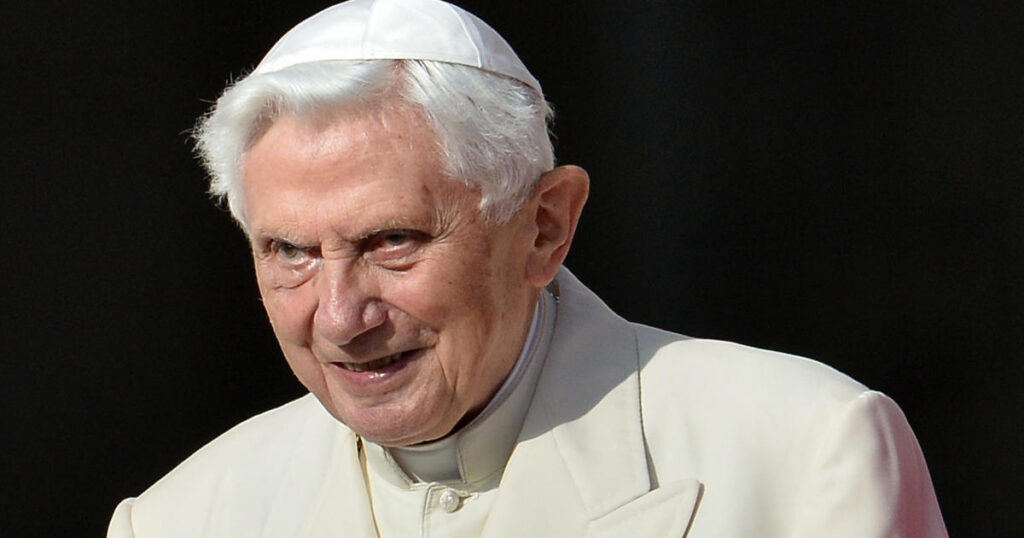“People with illegal money buried beneath the soil will face difficulties, but workers and businesses with legitimate incomes will face no difficulties at all.”
*The Permanent Secretary of the Ministry of Finance serves on the CBN’s board to ensure effective coordination.
In Abuja, Deji Elumoye
President Muhammadu Buhari yesterday assuaged concerns about the Central Bank of Nigeria’s (CBN) plan to redesign and replace N1,000, N500, and N200 notes by December 15, saying the country would benefit greatly from the exercise.
According to a statement issued yesterday by his spokesman, Mallam Garba Shehu, Buhari supports the CBN’s decision.
Buhari said in a Hausa language radio interview with journalists Halilu Ahmed Getso and Kamaluddeen Sani Shawai, which will air Wednesday morning on Tambari TV on Nilesat, that the reasons given by the CBN for the change of banknotes convinced him that the economy would benefit from lower inflation, currency counterfeiting, and excess cash in circulation.
The president stated that he did not consider the three-month transition period to the new notes to be short.
Buhari was quoted in the statement as saying, “Workers and businesses with legitimate incomes will face no difficulties at all. People with illicit money buried under the soil will face difficulties.”
The president also addressed critical issues such as food security and national security in the interview.
Last week, the CBN announced a plan to redesign the N200, N500, and N1,000 bills in order to combat vote-buying and control the amount of money in circulation.
A senior presidency official who did not want to be identified expressed dismay at the minister’s statement in the House of Representatives last week, disowning the redesigning of the naira notes previously announced by the CBN governor, stating that the permanent secretary, ministry of finance is a member of the CBN’s board of directors to ensure effective coordination between the ministry of finance and the CBN.
“It was extremely embarrassing for the minister to claim that she was unaware of the policy and had not been consulted prior to its implementation.”
“If her permanent secretary is a member of the CBN board, how can she claim not to be aware of the initiative?”
Mr. Godwin Emefiele, Governor of the Central Bank of Nigeria, disclosed the apex bank’s decision to redesign the banknotes at a media briefing in Abuja, saying the change was a result of Buhari’s approval.
Emefiele stated that the new banknotes would go into circulation on December 15. He added that the move was also intended to address the growing ease and risk of currency counterfeiting, as evidenced by several security reports, as well as the increased risk to financial stability and the worsening scarcity of clean and fit currency, with the attendant image problem for the central bank.
According to Emefiele, there was significant hoarding of naira notes by members of the public, with statistics indicating that more than 80% of the currency in circulation was outside the vaults of commercial banks. He stated that as of September 2022, a total of N3.2 trillion was in circulation, of which N2.73 trillion was outside the vaults of the banks, calling the situation unacceptable.
Emefiele stated that the new and existing notes would remain legal tender and circulate alongside each other until January 31, 2023, when the existing currencies would cease to be legal tender.
As a result, he stated that all banks currently holding existing denominations of the currency may begin returning them to the CBN immediately, and that the newly designed currency would be distributed to banks on a first come, first served basis.
Emefiele also urged bank customers to begin depositing existing currency notes into their accounts so that they can withdraw the new banknotes once circulation begins in December.
He stated that all banks were expected to keep their currency processing centers open from Monday to Saturday in order to accommodate all cash returned by their customers.
The CBN governor also stated that bank charges for cash deposits had been suspended with immediate effect for the purpose of transitioning from existing to new notes. He went on to say that no bank customer should be charged for cash returned or paid into their accounts.
Emefiele emphasized that the current notes were still legal tender and should not be rejected as a means of payment for goods and services.
He reassured the public that the CBN would continue to monitor both the financial system and the economy in general, and that it would always act in good faith to achieve the bank’s objectives and the country’s betterment.
Further explaining the apex bank’s decision, Emefiele stated that there had been concerns about the management of the current series of banknotes as well as currency in circulation, particularly those outside the country’s banking system. Currency management, he said, remained a key function of the CBN, as stated in Section 2 (b) of the CBN Act 2007.
Emefiele stated that in recent times, currency management has faced several daunting challenges that have grown in scale and sophistication, with attendant and unintended consequences for both the CBN and the country’s integrity. He added that recent advances in photographic technology and printing device advancements had also made counterfeiting relatively easier, emphasizing that the CBN had recorded significantly higher rates of counterfeiting in recent years, particularly at the denominations of N500 and N1,000 banknotes.
Following recent claims by Minister of Finance, Budget, and National Planning, Mrs. Zainab Ahmed, that her ministry was not involved in the exercise, CBN Director in Charge of Corporate Communication, Mr. Osita Nwanisobi, expressed surprise at the minister’s claim in a statement, stressing that the CBN remains a “very thorough institution that follows due process in its policy actions.”
Nwanisobi stated that the CBN management, in accordance with Sections 2(b), 18(a), and 19(a)(b) of the CBN Act 2007, had duly sought and obtained Buhari’s written approval to redesign, produce, release, and circulate new series of N200, N500, and N1,000 banknotes.
Nwanisobi urged Nigerians to support the currency redesign project, pointing out that some people were stockpiling large amounts of banknotes outside commercial banks’ vaults. He contended that such a trend should not be encouraged by anyone who cared about the country.
According to the apex bank’s spokesman, currency management in the country has faced several challenges that have jeopardized the integrity of the Naira, the CBN, and the country in general. He went on to say that every top-tier central bank would be committed to preserving the integrity of local legal tender, the efficiency of its supply, and its effectiveness in conducting monetary policy.
Nwanisobi explained that the CBN had even waited too long because it had to wait 20 years to carry out a redesign, whereas the standard practice globally was for central banks to redesign, produce, and circulate new local legal tender every five to eight years.
While assuring Nigerians that the currency redesign was purely a central banking exercise, the CBN spokesman expressed optimism that the effort will, among other things, deepen Nigeria’s push to establish a cashless economy in the face of increased eNaira minting.
He added that this was in addition to helping to reduce incidents of terrorism and kidnapping caused by individuals’ access to large sums of money outside the banking system, which was used as a source of funds for ransom payments.
The CBN director urged Nigerians of all socioeconomic backgrounds to support the Naira redesign project, claiming that it is for the greater good of the economy.
Abdulrasheed Bawa, Executive Chairman of the Economic and Financial Crimes Commission (EFCC), praised the CBN’s move, calling it “a well-considered and timely response” to the challenge of currency management, which had negatively impacted the country’s monetary policy and security imperatives.
Bawa stated in a statement, “The EFCC, the CBN, and some other financial sector regulators have recently worked closely to determine how best to stabilize the country’s monetary policy environment.”
It is heartening that the CBN has shown courage in making this bold decision, which I believe will bring sanity to Nigeria’s currency management situation.”
The EFCC chairman urged Nigerian financial service providers, particularly deposit money banks and bureau de change operators, to follow the CBN’s guidelines to ensure the smooth withdrawal of old currency.
He warned that the EFCC would closely monitor the process to ensure that unscrupulous players and currency speculators, as well as their BDC cohorts, did not undermine the exercise. He also warned banks to be mindful of their reporting obligations and to refrain from assisting unscrupulous customers in laundering suspected criminal proceeds through their system.
The EFCC chief also stated that the CBN’s goals in redesigning and reissuing higher denomination Naira notes aligned with the goals of the Money Laundering Prevention Prohibition Act 2022, which criminalizes the conduct of cash transactions above a certain threshold.








